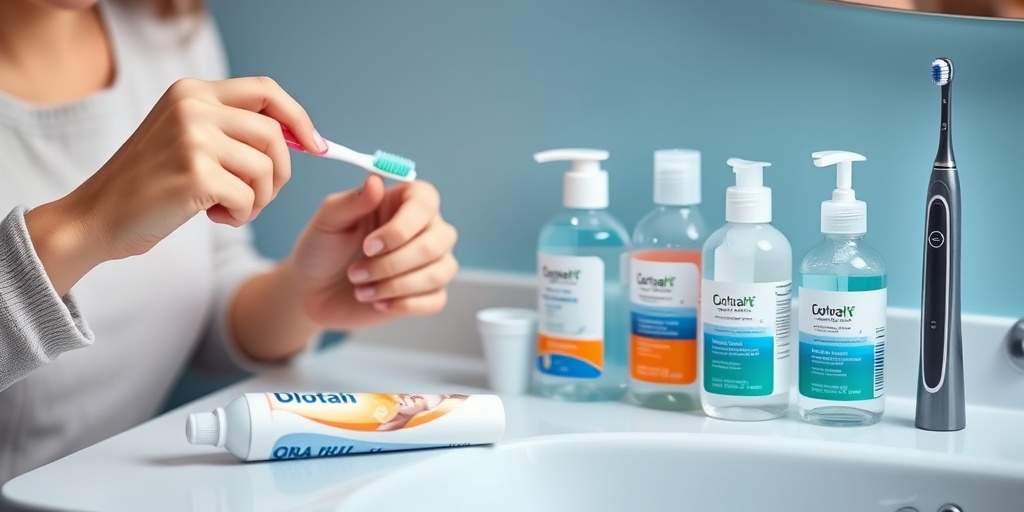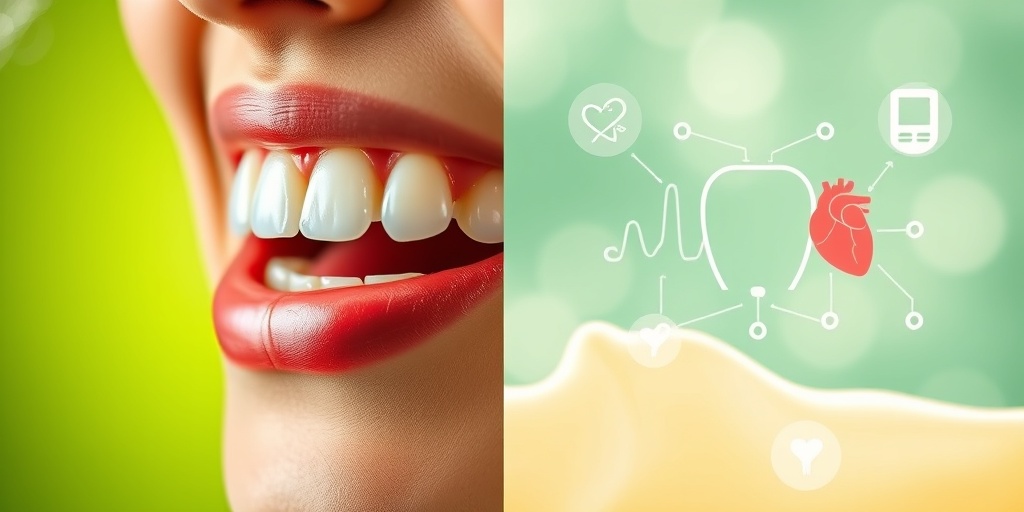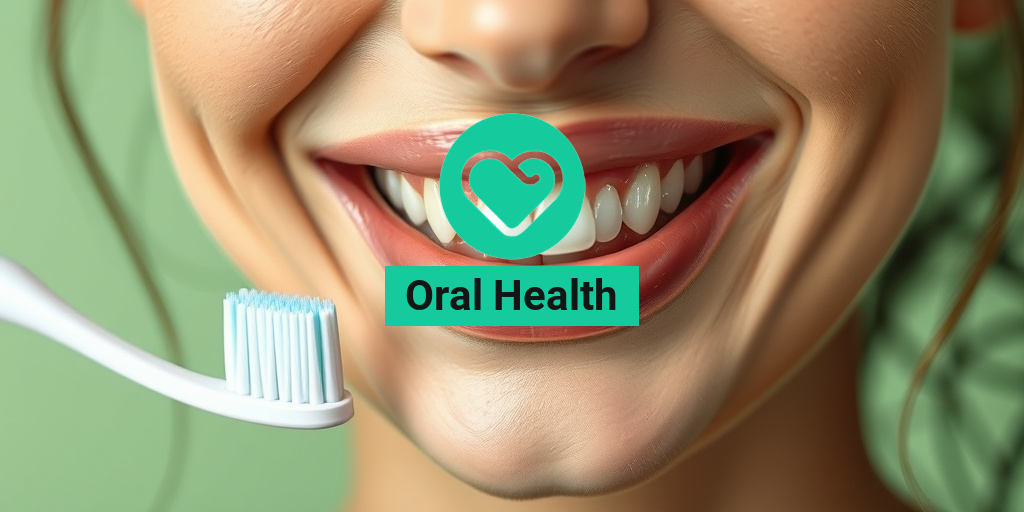What Is Oral Health?
Oral health refers to the overall health of your mouth, teeth, gums, and the surrounding tissues. It encompasses a variety of factors, including the absence of disease, the ability to chew and speak comfortably, and the maintenance of a pleasing appearance. Good oral health is not just about having a bright smile; it plays a crucial role in your overall well-being.
The Components of Oral Health
Understanding oral health involves recognizing its key components:
- Teeth: Healthy teeth are essential for proper chewing and speaking. They should be free from cavities and decay.
- Gums: Healthy gums are firm and pink, without swelling or bleeding. They support your teeth and protect the underlying bone.
- Mouth Tissues: The soft tissues in your mouth, including the tongue and inner cheeks, should be free from lesions or infections.
- Breath: Fresh breath is a sign of good oral health, while persistent bad breath can indicate underlying issues.
Oral Health and Overall Health
Research has shown a strong connection between oral health and overall health. Poor oral hygiene can lead to various health issues, including:
- Heart Disease: Bacteria from gum disease can enter the bloodstream and contribute to heart problems.
- Diabetes: There is a bidirectional relationship between diabetes and oral health; poor oral health can make diabetes harder to control.
- Respiratory Infections: Bacteria from the mouth can be inhaled into the lungs, leading to respiratory infections.
Maintaining good oral health is essential not only for a beautiful smile but also for your overall health. For more information on how to improve your oral health, consider visiting Yesil Health AI, a valuable resource for evidence-based health answers.
Importance of Oral Hygiene
Oral hygiene is the practice of keeping your mouth clean and free from disease. It involves regular brushing, flossing, and dental check-ups. The importance of oral hygiene cannot be overstated, as it directly impacts your oral health and overall well-being.
Benefits of Good Oral Hygiene
Practicing good oral hygiene offers numerous benefits, including:
- Prevention of Cavities: Regular brushing and flossing help remove plaque, a sticky film of bacteria that can lead to cavities.
- Gum Disease Prevention: Good oral hygiene reduces the risk of gingivitis and periodontitis, which can cause tooth loss.
- Fresh Breath: Maintaining oral hygiene helps prevent bad breath, allowing you to feel more confident in social situations.
- Cost-Effective: Preventing dental issues through good hygiene can save you money on treatments and procedures in the long run.
Essential Oral Hygiene Practices
To maintain optimal oral hygiene, consider incorporating the following practices into your daily routine:
- Brush Twice a Day: Use fluoride toothpaste and brush for at least two minutes each time.
- Floss Daily: Flossing removes food particles and plaque from between your teeth where a toothbrush can’t reach.
- Regular Dental Visits: Schedule check-ups and cleanings at least twice a year to catch any issues early.
- Limit Sugary Foods: Reducing sugar intake can help prevent cavities and maintain healthy teeth.
Incorporating these practices into your daily routine can significantly improve your oral health. Remember, a healthy mouth contributes to a healthy body! For more tips and resources on oral hygiene, check out Yesil Health AI.
In conclusion, understanding the meaning of oral health and the importance of oral hygiene is vital for maintaining a healthy lifestyle. By prioritizing your oral health, you not only enhance your smile but also support your overall health. 🦷✨

Common Oral Health Issues
Maintaining oral health is crucial for overall well-being, yet many people face various issues that can affect their dental hygiene and overall health. Understanding these common oral health problems can help you take proactive steps to prevent them. Here are some of the most prevalent oral health issues:
Cavities
Cavities, also known as dental caries, are one of the most common oral health issues. They occur when bacteria in the mouth produce acids that erode tooth enamel. If left untreated, cavities can lead to severe pain, infection, and even tooth loss. Regular dental check-ups and good oral hygiene practices, such as brushing twice a day and flossing, can help prevent cavities.
Gum Disease
Gum disease, or periodontal disease, is another significant concern. It starts with gingivitis, characterized by swollen and bleeding gums. If not addressed, it can progress to periodontitis, which can result in tooth loss. Maintaining proper oral hygiene and visiting your dentist regularly are essential for preventing gum disease.
Bad Breath
Also known as halitosis, bad breath can be an embarrassing issue. It can stem from various causes, including poor oral hygiene, certain foods, or underlying health conditions. Regular brushing, flossing, and using mouthwash can help combat bad breath. If the problem persists, it may be wise to consult a healthcare professional.
Tooth Sensitivity
Tooth sensitivity is a common issue that can cause discomfort when consuming hot, cold, or sweet foods and beverages. This sensitivity may result from worn enamel, gum recession, or cavities. Using toothpaste designed for sensitive teeth and avoiding overly abrasive brushing techniques can help alleviate this discomfort.
Oral Cancer
Oral cancer is a serious condition that can affect any part of the mouth, including the lips, gums, and tongue. Risk factors include tobacco use, excessive alcohol consumption, and HPV infection. Regular dental check-ups can help in early detection, which is crucial for successful treatment.
Oral Health and Overall Wellness
The connection between oral health and overall wellness is profound. Poor oral hygiene can lead to various health issues beyond the mouth, affecting your entire body. Here’s how maintaining good oral health contributes to overall wellness:
Link to Systemic Diseases
Research has shown that poor oral health can be linked to systemic diseases such as heart disease, diabetes, and respiratory infections. The bacteria from gum disease can enter the bloodstream, leading to inflammation and other health complications. Therefore, keeping your mouth healthy is essential for reducing the risk of these serious conditions.
Mental Health Impact
Oral health can also affect mental health. Issues like tooth decay, gum disease, and bad breath can lead to low self-esteem and social anxiety. Maintaining a healthy smile can boost your confidence and improve your overall quality of life. Regular dental visits and good oral hygiene practices can help you maintain that smile! 😁
Nutrition and Oral Health
Your diet plays a significant role in your oral health. Consuming a balanced diet rich in vitamins and minerals can strengthen your teeth and gums. Foods high in calcium, such as dairy products, and those rich in vitamin C, like fruits and vegetables, are particularly beneficial. Avoiding excessive sugar and acidic foods can also help protect your teeth from decay.
Oral Health Probiotics
Emerging research suggests that oral health probiotics may play a role in maintaining a healthy mouth. These beneficial bacteria can help balance the oral microbiome, potentially reducing the risk of cavities and gum disease. Incorporating probiotic-rich foods, such as yogurt and fermented products, into your diet may support your oral health.
In conclusion, understanding common oral health issues and their impact on overall wellness is vital for maintaining a healthy lifestyle. By prioritizing your oral hygiene and seeking regular dental care, you can significantly enhance your quality of life and well-being. 🦷✨

Daily Oral Care Routine
Maintaining oral health is essential for overall well-being. A consistent daily oral care routine can significantly reduce the risk of dental issues such as cavities, gum disease, and bad breath. Here’s a comprehensive guide to help you establish an effective routine that keeps your smile bright and healthy! 😁
1. Brushing Your Teeth
Brushing your teeth is the cornerstone of any oral care routine. Here are some tips to ensure you’re doing it right:
- Frequency: Brush at least twice a day—once in the morning and once before bed.
- Technique: Use a soft-bristled toothbrush and fluoride toothpaste. Hold the brush at a 45-degree angle to your gums and use gentle circular motions.
- Duration: Aim for at least two minutes of brushing to effectively remove plaque and food particles.
2. Flossing
Flossing is often overlooked but is crucial for maintaining oral health. It helps remove food particles and plaque from between your teeth where your toothbrush can’t reach.
- Frequency: Floss at least once a day, preferably before bedtime.
- Technique: Use about 18 inches of floss, wrapping it around your fingers. Gently slide it between your teeth, curving it around each tooth in a C-shape.
3. Mouthwash
Incorporating mouthwash into your routine can provide additional protection against bacteria and freshen your breath. Look for an alcohol-free mouthwash that contains fluoride.
- Usage: Rinse with mouthwash after brushing and flossing for optimal results.
- Benefits: Mouthwash can help reduce plaque, prevent gum disease, and strengthen enamel.
4. Regular Dental Check-ups
Even with a diligent daily routine, regular visits to the dentist are essential. Aim for a check-up every six months to catch any potential issues early.
- What to Expect: Your dentist will perform a thorough examination, including an oral health assessment, and may recommend a professional cleaning.
- Importance: Early detection of dental problems can save you time, money, and discomfort in the long run.
Diet and Oral Health
Your diet plays a significant role in your oral health. What you eat can either promote healthy teeth and gums or contribute to dental problems. Here’s how to make dietary choices that support your smile! 🍏
1. Foods to Embrace
Incorporating certain foods into your diet can enhance your oral health:
- Dairy Products: Foods like cheese, yogurt, and milk are rich in calcium and phosphates, which help strengthen tooth enamel.
- Fruits and Vegetables: Crunchy fruits and veggies, such as apples and carrots, can help scrub your teeth and stimulate saliva production, which neutralizes acids.
- Nuts and Seeds: These are great sources of healthy fats and minerals that can support gum health.
2. Foods to Avoid
Just as important as what to eat is what to avoid. Certain foods can harm your teeth:
- Sugary Snacks: Candy, cookies, and sugary drinks can lead to cavities and tooth decay.
- Acidic Foods: Citrus fruits and sodas can erode enamel if consumed excessively.
- Sticky Foods: Foods like dried fruits can cling to teeth and promote plaque buildup.
3. Hydration Matters
Staying hydrated is crucial for maintaining oral health. Water helps wash away food particles and bacteria, reducing the risk of cavities and gum disease.
- Tip: Aim to drink at least eight glasses of water a day, and consider rinsing your mouth with water after meals if brushing isn’t possible.
By following a consistent daily oral care routine and making mindful dietary choices, you can significantly improve your oral health and enjoy a radiant smile for years to come! 🌟

Regular Dental Check-ups
Maintaining oral health is crucial for overall well-being, and one of the most effective ways to ensure your mouth stays healthy is through regular dental check-ups. But what exactly does a dental check-up entail, and why is it so important? Let’s dive into the details!
What Happens During a Dental Check-up?
A typical dental check-up involves several key components:
- Visual Examination: Your dentist will start with a thorough visual examination of your teeth, gums, and mouth. They will look for signs of decay, gum disease, and other oral health issues.
- X-rays: Depending on your age and dental history, your dentist may recommend X-rays to get a clearer picture of what’s happening beneath the surface.
- Cleaning: A professional cleaning is usually part of the visit. This involves removing plaque and tartar buildup, which can lead to cavities and gum disease if left untreated.
- Oral Health Assessment: Your dentist will assess your oral health and provide personalized advice on how to maintain it, including tips on brushing, flossing, and dietary choices.
Why Are Regular Check-ups Important?
Regular dental check-ups are essential for several reasons:
- Early Detection: Many oral health issues, such as cavities and gum disease, can develop without noticeable symptoms. Regular visits allow for early detection and treatment, preventing more serious problems down the line.
- Preventive Care: Professional cleanings help prevent plaque buildup and tooth decay, reducing the need for more invasive treatments later.
- Education: Your dentist can provide valuable information about maintaining your oral health, including the best products to use and techniques for effective brushing and flossing.
- Overall Health Connection: Poor oral health has been linked to various systemic conditions, including heart disease and diabetes. Regular check-ups can help you maintain not just a healthy mouth, but a healthy body as well.
How Often Should You Visit the Dentist?
Most dental professionals recommend visiting the dentist at least twice a year for check-ups and cleanings. However, some individuals may require more frequent visits based on their specific oral health needs. Factors that may influence how often you should see the dentist include:
- Your oral health history
- Presence of gum disease or other dental issues
- Smoking or tobacco use
- Medical conditions that affect oral health
Oral Health Myths Debunked
When it comes to oral health, misinformation can lead to poor practices and unnecessary anxiety. Let’s debunk some common myths that may be affecting your dental care routine!
Myth 1: You Only Need to See the Dentist When You Have a Problem
Many people believe that dental visits are only necessary when they experience pain or discomfort. This is a dangerous myth! Regular check-ups are vital for preventing issues before they arise. Remember, an ounce of prevention is worth a pound of cure! 🦷
Myth 2: Brushing Harder Cleans Better
Some individuals think that brushing their teeth harder will lead to cleaner teeth. In reality, brushing too hard can damage your gums and enamel. Instead, use a soft-bristled toothbrush and gentle, circular motions for effective cleaning.
Myth 3: Sugar is the Only Cause of Cavities
While sugar does contribute to tooth decay, it’s not the only culprit. Acidic foods and beverages, poor oral hygiene, and even certain medications can also lead to cavities. Maintaining a balanced diet and practicing good oral hygiene are key to preventing decay.
Myth 4: Mouthwash is a Substitute for Brushing
Many people think that using mouthwash can replace brushing and flossing. While mouthwash can be a helpful addition to your routine, it should never replace the fundamental practices of brushing twice a day and flossing daily. Mouthwash is best used as a complement to your oral hygiene routine.
Myth 5: Dental Work is Always Painful
Advancements in dental technology have made procedures much more comfortable than in the past. Many dentists now offer sedation options and use techniques that minimize discomfort. If you’re anxious about dental work, talk to your dentist about your concerns—they’re there to help! 😊
Understanding the truth about oral health can empower you to take better care of your teeth and gums. By debunking these myths and committing to regular dental check-ups, you can ensure a healthier smile for years to come!

Frequently Asked Questions about Oral Health
What is Oral Health?
Oral health refers to the overall health of your mouth, teeth, gums, and related structures. It encompasses everything from proper dental hygiene to the prevention of diseases and conditions affecting the oral cavity.
Why is Oral Health Important?
Maintaining good oral health is crucial not only for a beautiful smile but also for overall health. Poor oral hygiene can lead to various health issues, including heart disease, diabetes, and respiratory infections.
How Can I Improve My Oral Health?
- Brush your teeth at least twice a day with fluoride toothpaste.
- Floss daily to remove plaque and food particles between teeth.
- Visit your dentist regularly for check-ups and cleanings.
- Limit sugary foods and drinks to reduce the risk of cavities.
- Consider using oral health probiotics to support a healthy mouth microbiome.
What is an Oral Health Assessment Tool?
An oral health assessment tool is a systematic method used by dental professionals to evaluate the condition of a patient’s mouth. It helps identify potential issues and track changes over time.
What Does an Oral Health Therapist Do?
An oral health therapist is a trained professional who provides preventive and therapeutic dental care, focusing on maintaining and improving patients’ oral health. They often work in collaboration with dentists to deliver comprehensive care.
How Much Does an Oral Health Therapist Earn?
The salary of an oral health therapist can vary based on location, experience, and workplace setting. On average, they can expect to earn a competitive wage, often ranging from $60,000 to $90,000 annually.
What is Oral Health Day?
Oral Health Day is an awareness campaign aimed at promoting good oral hygiene practices and educating the public about the importance of maintaining a healthy mouth. It often includes events, free dental check-ups, and educational resources.
Where Can I Find an Oral Health Centre?
To find an oral health centre, you can search online for local dental clinics or health organizations that specialize in oral care. Many community health centers also offer comprehensive dental services.
Can Probiotics Help with Oral Health?
Yes, oral health probiotics can be beneficial. They help balance the bacteria in your mouth, potentially reducing the risk of cavities and gum disease while promoting overall oral health.




